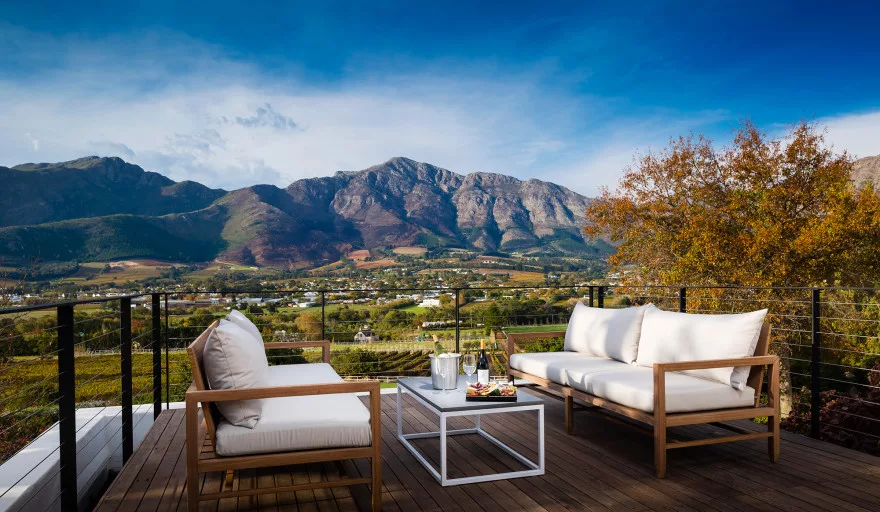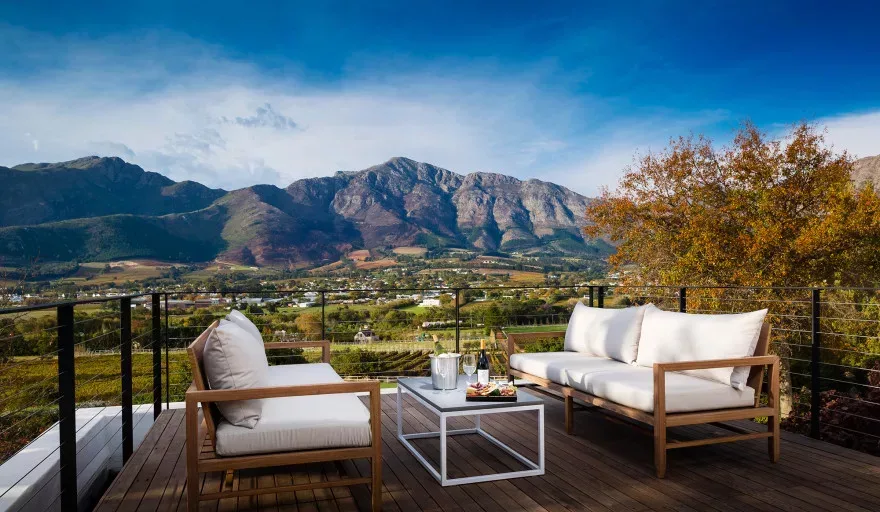
South Africa and Kenya represent two of Africa’s largest tourism markets. Last year South Africa accumulated $8.82 billion in international tourism receipts, the most of any African country, with Kenya’s $0.93 billion making it the seventh largest.
The luxury travel sector is playing an increasingly prominent part in this equation. Globally the industry is booming, with 2017/2018 growth in double digits, and the general attitude towards luxury is shifting alongside this expansion.
Operating in this market in Africa is Virgin Limited Edition, with several properties spread over the continent. We asked the general managers of three of its hotels and resorts in Kenya and South Africa for their take on this ever-evolving market.
Africa Outlook (AfO): Introduce us to your hotel.
Wilson Odhiambo (WO): Mahali Mzuri is Virgin Limited Edition’s tented luxury safari camp in the northern region of Kenya’s Maasai Mara. We have 12 unique tented suites perched on a ridge overlooking the valley; giving panoramic views whilst still being tucked away and keeping the landscape intact. The camp opened in August 2013 and was designed to have a minimal footprint on the land and wildlife.
Karl Langdon (KL): Ulusaba is a private game reserve located in the Sabi Sand in South Africa. We opened in 2000, and I joined the same year as a Game Ranger. My wife and I have worked together as General Managers at the property since 2006 and together we oversee the overall management of the property; including operations and guest services, as well as management of the Land and all conservation and community aspects. We have 21 rooms and suites spread over two lodges: Rock Lodge and Safari Lodge. Built along the banks of a dry riverbed, Safari Lodge guests cross swing bridges to reach their rooms. The bridges were designed to connect the rooms while allowing elephants and giraffes to pass peacefully below.
James Basson (JB): Mont Rochelle is a 26-bedroom hotel and vineyard just under an hour’s drive from Cape Town in the town of Franschhoek, South Africa. The hotel was originally built as a family farmhouse in the 1800’s, and opened as part of the Virgin Limited Edition collection in 2014. Our location at the foot of the Klein Dassenberg mountain range.
AfO: What is your target market? What makes your hotel/resort unique?
WO: One of the most unique things about Mahali Mzuri is its location in the Olare Motorogi Conservancy. It is perfectly placed to witness the annual Great Migration and fantastic year-round game viewing. Our tents are designed to get guests as close to nature as possible so that as they turn in for the night they can hear lions in the mara. In fact, many of our guests say that they don’t even need to go on the twice-daily game drives during a stay; the tents positioning just behind a watering hole means that they can see a variety of animals from the comfort of their private deck. Our guests are looking for a safari experience like no other, and industry reports have shown that safaris have been particularly popular with British tourists this year. With Kenya Airways launching a new direct flight route from New York to Nairobi later this year we are anticipating that interest in the region will only grow, particularly from the US market.
KL: It’s hard to choose just one ‘target market’ as our guests are so varied. Ulusaba hosts a lot of special celebrations; milestone birthdays, ‘once-in-a-lifetime’ retirement trips, honeymoons and even weddings. We also have a lot of repeat guests who choose to come back and see us year after year, becoming one of the family. Our location means that we are known for the quality of safari experience and we are lucky enough to have some of the most experienced rangers and trackers in the country. As well as twice-daily game drives, all food and drinks (including alcoholic beverages) are included in the rates so we can offer an exceptional experience. We like to call it ‘barefoot luxury’. One very special aspect of Ulusaba that makes us unique is our relationship with the local community. 15 years ago, we founded the camp’s charitable arm ‘Pride ‘n Purpose’, which helps disadvantaged communities neighbouring the Sabi Sand. Today it is estimated that Pride ‘n Purpose benefits over 35,000 people across six communities.
JB: Mont Rochelle has a lot of visitors from Europe who will visit us as part of a ‘multi-destination’ trip around Africa, and many choose to twin a stay with a trip to one of the Virgin Limited Edition safari properties. We developed our ‘winelands and wildlife’ package to allow guests to experience all the continent has to offer by combining a stay with a trip to Ulusaba or Mahali Mzuri. A lot of our guests are from South Africa and visit us for a short break away, particularly in our ‘off-peak’ periods when we extend an exclusive 30 percent discount off published rates for residents. Our two on-site restaurants, Miko and the Country Kitchen, are very popular with day-visitors to the winelands and we also offer picnics to enjoy in the grounds.
AfO: What is your take on Southern Africa’s luxury hospitality sector? Are you seeing a growing demand for these services?
WO: In my opinion, the word ‘luxury’ is a bit of a cliché. Taking luxury to the next level is about giving guests the opportunity to discover experiences that truly touch their soul. Africa is one of the few places where you can truly come and disconnect to reconnect; it’s a very authentic state and perfect for finding yourself. There are some luxuries that you don’t get in everyday life, and one of the biggest is time. To be able to give time and real experiences back to people is very important. It’s these experiences that give people a reason to travel, and they are able to return home thinking ‘I needed that’.
KL: I would say that we’ve seen a shift in what ‘luxury’ means for travellers. In recent years there has definitely been an increase in those looking to create lasting life experiences; whether that’s in an urban environment, culturally or by connecting with wildlife. The luxury industry has definitely grown, but with a focus on tangible experiences and a sense of ‘belonging’ in the region. Beyond the opulence, travellers want to know where their money goes and be safe in the knowledge that camps, hotels or tour operators are giving back. For example, every September we take part in Arbor Month, a whole month full of fun projects aimed at improving quality of life in the local community. Our guests are encouraged to help plant fruit trees in the local village of Dumphries as part of a community visit. We send updates with the progress of the trees that are planted long after they have gone home, to help keep the memories alive.
JB: South Africa has some of the best properties in the world; I would say that hospitality-wise we are offering top level services. However, the ‘product’, or the hotel itself, only plays a small part in this. It’s the overall experience, the soul of the teams and the level of service that really makes visiting South Africa special. There is a demand for luxury, but it is not pretentious, it’s real and that’s what luxury means to our clients and guests.
AfO: How important is tourism generally to your area?
WO: Tourism is a means for life in Kenya, it is very important for us. We have seen great economic growth and now tourism is one of our biggest industries, second only to agriculture. These days more youngsters are staying in Kenya to study tourism as they know they can have a very successful career in the industry without having to leave their country.
KL: It’s vital in the Sabi Sand; tourism is the biggest industry in the area and Africans are naturally hospitable people. However, the benefits of tourism expand far beyond the employment benefits for those working in the industry. As well as the role tourism can play in conservation efforts for the flora and fauna, it can also support wider businesses in the community. At Ulusaba, we support local suppliers as much as possible and work with farmers to source produce for our kitchen, craft-makers to sell their wares in the Gift Shop and local choirs and Shanghaan dancers to provide entertainment for our guests.
JB: It’s massively important. It’s the main provider of employment in the local community; from restaurants to hotels and wine estates, all of these contribute to our economy. Of course, having such a choice of fantastic hospitality businesses only contributes to our guests’ experiences too.
AfO: How can Virgin Limited Edition as a brand ensure it is successful in Africa?
WO: Virgin Limited Edition has an ethos that it believes in, and this authenticity keeps the Company on the right track. By showing our guests authentic African experiences, taking them back to basics and allowing them to discover themselves, they can make a true connection with the team and the place. Our guests make Mahali Mzuri a second home and this is what keeps them coming back. I’m really looking forward to focussing on increasing our social footprint and finding even more ways to support the local community. I think kindness is one of the most important factors for success, so we are always looking for opportunities to ‘give back’.
KL: Working ethically, having morals and engaging with the team and the local communities are all incredibly important for success, and are things that I am proud to say Virgin Limited Edition takes seriously. We are already on the right path, so continuing to drive these aspects can only help our success.
JB: When visiting our properties in Africa, you are going to experience a completely rounded experience and I think that is one of the reasons why Virgin Limited Edition has been so successful. We take pride in ensuring that our properties are connected to their location through local employment, using and promoting local produce and experiences that are true to the location. At Mont Rochelle it’s all about gastronomy, but more importantly it’s showcasing the African spirit. This is our biggest selling point and why our guests return year after year and are now friends for life.






























